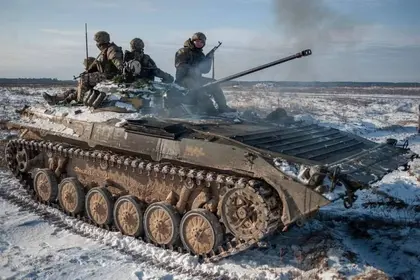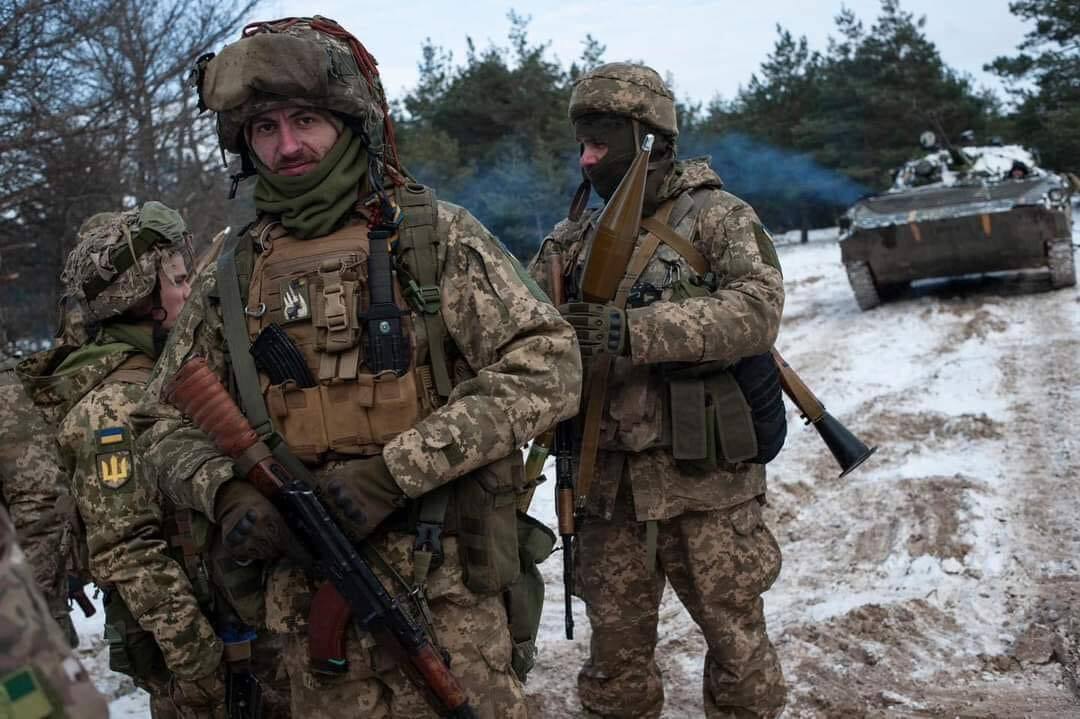Currently, according to the General Staff of Ukraine, the most difficult situation is in the direction of Bakhmut, in particular near Bakhmut and Soledar. Every day, the Ukrainian military repels enemy attacks there. However, Russia regains its strength and goes on the offensive again.
"We manage to counterattack. Positions were recently captured. The enemy is pushed back a bit. But it is daily. Somewhere the enemy is advancing, somewhere retreating. But the enemy has very large forces concentrated in that direction. Despite the colossal losses, the enemy continues to send people there - some die, others come," said the spokesman of the State Border Service of Ukraine Andriy Demchenko.
JOIN US ON TELEGRAM
Follow our coverage of the war on the @Kyivpost_official.
Instead, Ukrainian intelligence reports that due to heavy losses among the military, Russia will announce a new wave of mobilization on January 15. According to Andriy Chernyak, representative of the main intelligence agency of Ukraine, the documents are already ready. Russia is allegedly planning to increase the size of its army to 2 million soldiers.
Mobilization in Russia and its repeated offensive have been discussed before. According to the commander-in-chief of the armed forces of Ukraine - Valery Zaluzhny, Russia may go on the offensive again from Belarus. According to forecasts of the Secretary of the National Security and Defense Council - Oleksiy Danilov, the hottest battles will take place in the coming months, particularly in February.

EXPLAINED: What We Know About Russia’s Oreshnik Missile Fired on Ukraine
"Why is it about the month of February? Because the Russian Federation is a country that must report by some ‘important’ dates. Remember, for example, how the Soviet Union used to report on a five-year plan in three years. And on February 24, it will be a year since they senselessly started a full-scale war against our people," Danilov said in one of his interviews.
According to military analysts, today Russia does not have enough forces for a major offensive. And in order for the newly mobilized to be delivered to the combat zone, it will take at least two months. After all, Russia will first need to provide new army personnel with the necessary equipment, and then conduct training. So, most likely, the offensive will take place in the spring. At the same time, according to the head of Ukrainian intelligence, Kyryl Budanov, Ukraine will go on a counterattack.
The opinion of Ukrainians regarding the situation on the front
We decided to find out the position of Ukrainians simply on the street - in the center of the capital. This is not a statistical cut, as we interviewed only 10 people. Here are the thoughts of some of them.
42-year-old Olha was the first to agree to talk with us. The woman was waiting for public transport at the stop.
"I have strange feelings and emotions now. That is... We all talk about the losses of the Russian army, but everyone is silent about our losses. And I think they are not much smaller. Hurts a lot for our country...".
After Olha, we managed to talk with the couple - Vera and Edik. The woman did not want to speak, but Edik gladly answered the question:
"Well, what are your thoughts? We volunteer, often travel to Donbas. Not on the front line, of course, but still. What the fighters are saying is not very encouraging. The Russians are pushing and shoving, ours are on the defensive. To be honest, it's scary, but confidence in the Armed Forces is higher than any fear".
The police officers who stood at the checkpoint also shared their opinions.
"Everyone does their job. And does it well, as we have been holding on very decently for a year. The enemy cannot be underestimated. We have a very strong enemy, but we also have very strong allies. I think there is still a long and hard struggle ahead, but we will be able to do everything. No other way," – officer Ihor said.
We interviewed a few more people, but their words roughly coincided with those previously interviewed. Almost all of them said that it feels like one of the most difficult periods of the war, but you can't give up, because "the darkest night is usually before dawn".
You can also highlight the text and press Ctrl + Enter







